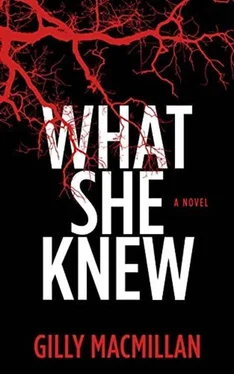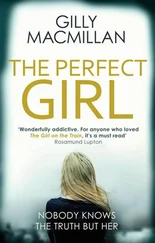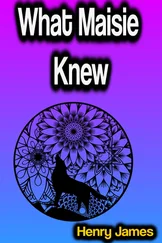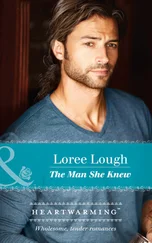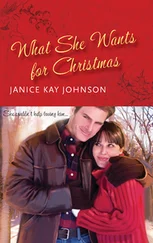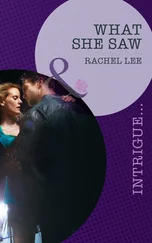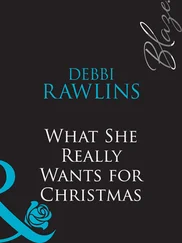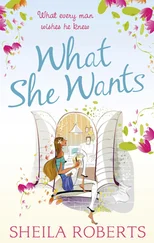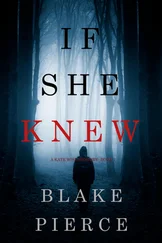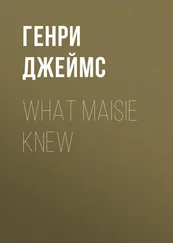I took the book, ran my hand over its shiny cover, and felt the dog-eared edges. It was a monograph, and its subject was the artist Odilon Redon.
‘The museum,’ I said. ‘When we took Ben to see the dinosaurs and ended up looking at the paintings.’
‘Yes!’ she said. ‘I’ve marked the page. Can you see?’
I opened the book where she’d inserted a bookmark. It was a garish yellow strip of leather with a design of the Clifton Suspension Bridge embossed in it in gold. Ruth didn’t have many ugly possessions, but this was one of them and she kept it because Ben had bought it for her on a school trip.
‘We looked at the William Scott painting first, do you remember?’ said Ruth.
I did. It was a huge canvas, wall-sized, with an ink-black background and four large formless abstract shapes floating within it, in white, darker black and a complex shade of blue that brought to mind a sunlit Cornish coastline. ‘What is it?’ Ben had asked me, his hand nestled in mine. ‘It’s whatever you want it to be,’ I’d said. ‘I like it,’ he replied. ‘It’s random.’ ‘Random’ was a new word that Ben had learned at school and he used it whenever he could.
In the next gallery Ben had been drawn to a small canvas by Odilon Redon, and a copy of this was revealed when I opened the book. In the museum, Ben had stood in front of it, just inches from it, while Ruth and I stood behind him.
‘What is this one?’ he asked us. In the centre of the painting was a white figure, mounted on a rearing white horse and holding aloft a long stick with a green flag at the top of it, which looked to be fluttering in a hot breeze. Behind the figure were two boats, barely emerging from the thickly painted background, with its suggestions of land, sea, clouds and sky in dusty shades of brown and blue.
‘It’s a bit messy,’ said Ben.
‘The artist has done that on purpose,’ Ruth told him. ‘He wants to suggest a dream to you, a world where stories take place and where you can use your imagination.’
‘What is the story?’
‘Like your mummy said about the other painting, the story is anything you want it to be. It’s everything or nothing.’
‘I would like to have a green flag,’ said Ben.
‘Then you could be an adventurer too, like the person in this painting. Would you like a white horse?’
Ben nodded.
‘And what about a boat?’ Ruth asked him.
‘No thank you,’ he said, and I knew he would say that, because Ben had a fear of the sea.
‘Do you know what I see in this painting?’ Ruth asked him.
He looked up at her.
‘I see a brave person riding a magnificent horse and I wonder where that person is going and where they’ve been,’ she told him. ‘And I also see music.’
‘Where is the music?’ he asked.
‘It’s in there. It’s in the paint, and the sea and the sky and in the story of the person and their horse and the ships,’ said Ruth. ‘All those things give me the idea of music, and then I can hear it in my head.’
‘And for me too,’ he said. He smiled at her, his face lit up. ‘It’s lots of fast notes, like an adventure.’
‘And slow ones too,’ said Ruth. ‘Do you see here – that thick bit of paint, where you can see how the painter smeared it on with his brush? That’s a slow note for me.’
Ben considered that. ‘Can you hear it, Mummy?’
‘Definitely,’ I told him, and in that moment just the sound of his voice, the innocence ringing in it, the eagerness to listen, was music enough. On that day, my son was seven years old, and I suspected already that he might not be the kind of child who could win a running race, or triumph on a rugby pitch, so to see him respond in this way to the paintings was a joy. It gave me so much hope for his future, that sensitivity he had, the way that he might be able to respond so positively to beauty and to ideas. I felt it would enable him to create reserves that he could draw on when he needed to, and I knew I could guide him through that, or at least set him off on his way.
What I hadn’t realised on that day, as Ruth and I took him downstairs to find tea and cake, was that he might need to draw on his reserves so soon. Before he would be ready. Or that he might never get a chance to build them up before they were shattered for ever.
‘Do you want to borrow the book?’ Ruth asked. I was lost on the page, in the image, and her voice pulled me back to now. ‘Ben might like to see it.’
What to answer? How to disguise my emotions? I managed only to say, ‘He would. Thank you.’
‘Bring him to see me next week. Promise you will.’
I was struggling to hold myself together. I went to stand at the window, keeping my face turned away from her, looking out at the beds of pruned roses in the garden below, at the sweeping, gracious branches of a mature cedar tree. But Ruth was no fool, dementia notwithstanding.
‘What is it, dear?’ she said.
‘I’m fine.’
‘I don’t like to see you like this, my darling. Come, sit with me, talk to me.’
I wanted to, I so wanted to. But the thing is that if I’d told her, it would have destroyed her. So I didn’t.
‘I’ve got to go now,’ I said. ‘I’ll see you next week.’
I put my face to hers, said goodbye, kissed her. She clasped my head to hers and for a moment the sides of our faces rested together. Her skin felt as smooth as gossamer, her cheek bony and delicate, barely there.
‘Bye bye, darling,’ she said. ‘Be strong. Remember: you are a mother. You must be strong.’
I got one of the DCs to pick up John Finch and bring him in. He was with us within the hour. He looked thinner than he had at the beginning of the week. I put the letter down in front of him.
‘Don’t take it out of the bag.’
He picked the bag up. Fingernails bitten to the quick. Shaking hands. He read out loud:
John Finch will now understand how it feels to lose a child.
It serves him right.
He has been arrogant, and now he will be humbled.
‘By medicine life may be prolonged, yet death will seize the doctor too.’
I watched him closely. He looked as if I’d swung a cudgel at his head, and made contact.
‘Who sent this? What is this?’
‘It arrived this morning. We don’t know who sent it. We’re hoping you can help us find out.’
The shaking in his hands spread to his wrists.
‘Is this my fault? Have I done this?’
‘Let’s not talk about fault. That’s not going to get us anywhere at this point. Do you have any idea who might have sent it? We think it implies that the sender has had contact with you in a professional capacity. I know I’ve asked you before, but I really need you to think about this again now. Do you know of anybody who might have a grudge against you? A former patient?’
John Finch looked like the most beaten person in the world. He looked like a man watching all his worst nightmares come true. His voice was tight with the effort it was costing him to control it. If I’m honest, I found the interview unexpectedly hard, and I think that’s because I recognised myself in him. I knew that if I was him, I would be broken too, and somehow, although it shouldn’t have, that got under my skin. I don’t know if it was my fatigue, or the way he tried so hard to hold on to his dignity, or perhaps both, but there it was, a small feeling of solidarity with him that I shouldn’t have allowed myself.
‘My patients are children, detective. They don’t tend to bear grudges. In fact their view of the world is often beautifully simple, beautifully fair.’
He ran the fingertips of one hand around his eye socket.
Читать дальше
